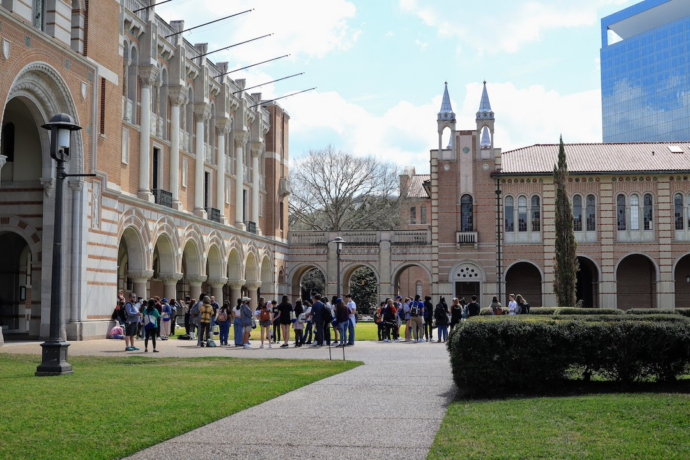ACLS Welcomes Rice University as Member of the ACLS Research University Consortium

The American Council of Learned Societies (ACLS) is pleased to welcome Rice University as the newest member of the ACLS Research University Consortium.
The ACLS Research University Consortium comprises a select group of ACLS Associate Members. These prominent institutions play a vital leadership role in helping to sustain and enhance the national infrastructure of humanities and interpretive social sciences research.
“We are delighted to welcome Rice University as a member of the ACLS Research University Consortium,” said ACLS President Joy Connolly. “With Texas much in the news these days, Rice University — and the School of Humanities in particular — occupies an important role in the state and in the nation, preparing students for meaningful lives and supporting scholars in their exploration of issues of pressing contemporary importance and enduring cultural and philosophical value. We are excited to work with Dean Kathleen Canning and the Rice community as we all do our best to advance the humanities and interpretive social sciences.”
Representatives of ACLS Consortium member institutions meet regularly, which provides crucial opportunities to share and explore solutions in response to urgent issues facing the academy. Rice University School of Humanities brings key experience and perspectives to this group as one of the United States’ top 20 universities, as ranked by US News & World Report.
“Our new membership in the ACLS Research University Consortium underscores the significance of the humanities at institutions that have long enjoyed recognition for their strength in STEM fields,” said Kathleen Canning, Dean of the School of Humanities and Andrew W. Mellon Professor of History at Rice University. “The School of Humanities at Rice has invested in the advancement of research excellence and in interdisciplinary programs — from a new Center for African and African American Studies to expanded programs in Medical Humanities, Environmental Justice, and Politics, Law and Social Thought – that forge new connections to the social and natural sciences. Our location in Houston, the most diverse city in the US and a zone of climate crisis, highlights the significance of the humanities as a foundation for the future and sustainability of democracy.”

